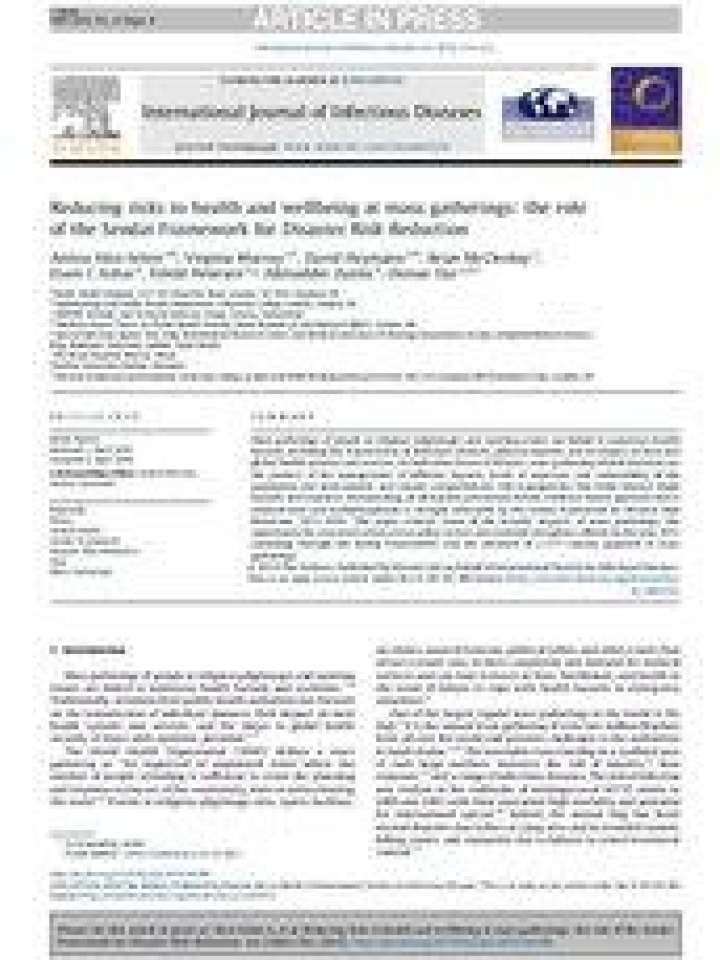Reducing risks to health and wellbeing at mass gatherings: The role of the Sendai Framework for Disaster Risk Reduction
Mass gatherings of people at religious pilgrimages and sporting events are linked to numerous health hazards, including the transmission of infectious diseases, physical injuries, and an impact on local and global health systems and services. In the light of this evidence, this paper discusses the following highlights:
- Reducing the health risks of mass gatherings and seizing the opportunities for health improvement that mass gatherings may offer requires a broader approach to the underlying determinants of risk similar to the comprehensive social determinants of health approach.
- One of the largest regular mass gatherings in the world is the Hajj. It is the annual mass gathering of over two million Muslims from all over the world and presents challenges for the authorities in Saudi Arabia.
- The battle against the spread of travel-related infections and other risks facilitated by globalization that arise from mass gatherings is a shared responsibility between different countries, sectors, and disciplines that can help to reduce risk.
- The Sendai Framework offers a unique opportunity to move beyond simply responding to emergencies to a more comprehensive, prevention-based approach to mass gathering management through the use of science and technical capabilities. It puts the protection of people's health, lives, and livelihoods at its centre.
International Journal of Infectious Diseases, April 2016. This article is published under a Creative Commons License Attribution 3.0 Unported.
Explore further
